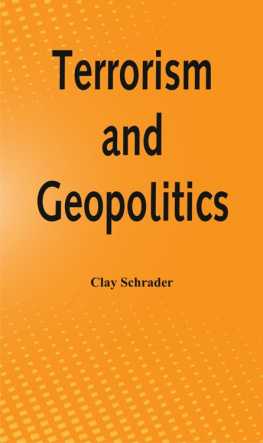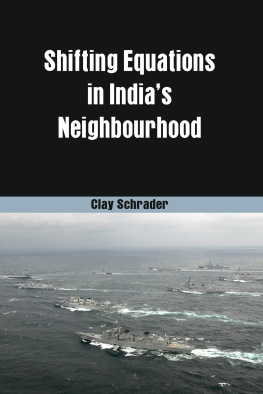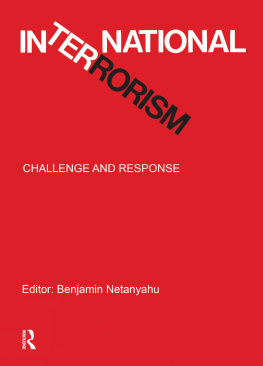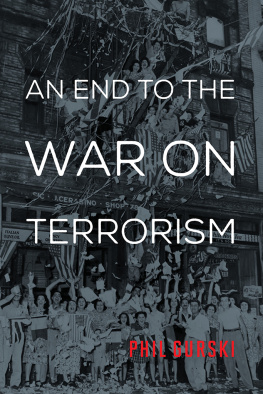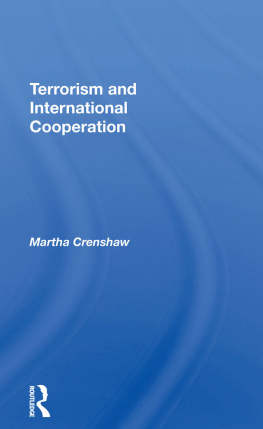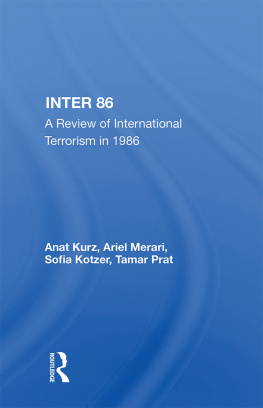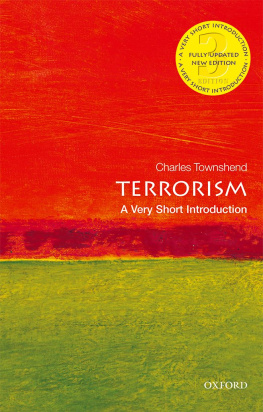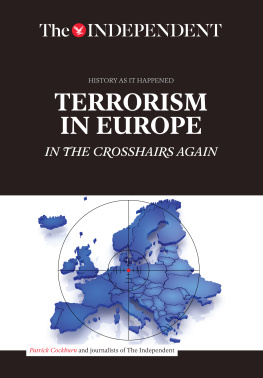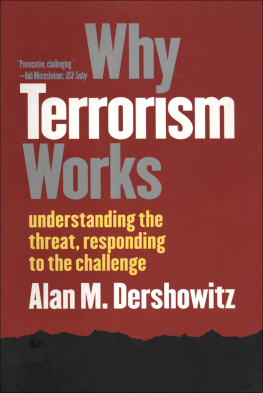Terrorism and Geopolitics
Terrorism and Geopolitics
Clay Schrader
Alpha Editions
Copyright 2017
ISBN : 9789386367495
Design and Setting By
Alpha Editions
email - alphaedis@gmail.com
All rights reserved. No part of this publication may be reproduced, distributed, or transmitted in any form or by means, including photocopying, recording, or other electronic or mechanical methods, without the prior written permission of the publisher.
The views and characters expressed in the book are of the author and his/her imagination and do not represent the views of the Publisher.
Contents
Preface
1. Introduction
2. Definition of an Act of Terrorism
3. Strategic Response of Terrorism
4. The Political Theory of Terrorism
5. Global Response to Terrorism
6. Critical Infrastructure Protection in the Fight against Terrorism
7. Relation to the Global War on Terrorism
8. International Opinion and Politics of War on Terror
9. Capitalism and Financing of Terrorism
Bibliography
Index
Preface
Terrorism has become the greatest evil in our worlds today. It is perpetrated by fanatics who are utterly indifferent to the sanctity of human life. Although the international community remains divided a universal definition of what is meant by terrorism, yet it remains committed to confront it through a variety of means. Terrorism draws its motivation from a clear and organized intention. Terrorists believe they are acting out a moral imperative on behalf of a well-established organization. Terrorists are not maniacs, and terrorism is not an accident. Terrorism is carefully planned yet invisible until it strikes.
This dimension of terrorist operations, however, arguably remains poorly understood. In no aspect of the September 11 attacks is this clearer than in the debate over whether all 19 of the hijackers knew they were on a suicide mission or whether only the 4 persons actually flying the aircraft into their targets did. It is a debate that underscores the poverty of our understanding of bin Laden, terrorism motivated by a religious imperative in particular, and the concept of martyrdom.
Geopolitics is defined as a branch of geography that promises to explain the relationships between geographical realities and international affairs. The idea that such relationships exist was noted as early as the ancient Greeks. Although noted at this early time it was only with the discovery of the conceptual and methodological tools of modern geography that scholars became convinced they could examine the connections in something approaching scientific precision.
Ideology acts as a veneer to cover real geopolitical interests and has been more than explicit in the American drive to camouflage its interests in Afghanistan and Central Asia under the cover of the "War on Terror." All the matter is just compiled and edited in nature. Taken from the various sources which are in public domain.
The present book is a document of that issues that is giving a new global philosophy of terrorism to the entire world and showing the path for the return to normal life.
Editor
Introduction
The attacks on the World Trade Center and the Pentagon, Colin Powell, the U.S. secretary of state, noted there had been an 8 percent increase in international terrorist attacks during the previous year. Of the 423 attacks recorded in the State Department inventory, 200 were directed against the United States or its citizens. Other summary accounts of international terrorism, including the Rand-St. Andrews Chronology of Terrorism, show similar trends. Only once since 1968, which is usually seen as the start of the age of modern terrorism, has the United States not led the list of countries whose citizens and property were most often attacked.
Over the course of the twentieth century, the greatest period of terrorist group formation was during the 1970s and 1980s; most of these groups were European and left-wing revolutionaries. The first South American terrorist groups were formed during the 1950s, but since about 1970 their numbers have generally been in decline.
Terrorist groups in North America have tended to be sporadic in their rate of formation and in their activities. The first Middle Eastern terrorist groups, excluding Irgun and Hagana actions prior to the creation of Israel, were founded in the 1960s and 1970s. Moreover, the causes espoused by terrorists have changed. The social revolutionaries, secular nationalists, and radical right of an earlier day have been largely replaced by terrorists promoting religiously inspired agendas, or, to be more precise, militant Islamic ones, that exist often without direct state support. Indeed, one of the most shocking aspects of the attack of September n was that this fury of killing was meant to please a deity. This raises an obvious question: what sort of deity would, in the minds of the terrorists, be pleased by the attacks of September n, 2001?
There is a genuine issue of interpretation here. It has become a commonplace among analysts of Al Qaeda and of other Middle Eastern terrorist groups to distinguish between what was identified above as militant Islam or Islamism and the religion practiced by Muslims. This distinction is based not on political correctness but on empirical evidence. It is a problem to which we must return below, in chapters 3 and 4. Most Muslims, of course, are neither Islamist fundamentalists nor terrorists; many terrorists, however, proclaim they are Muslimsindeed, many proclaim they are the only true Muslims. It is certainly legitimate for Muslims to object to the term Islamic terrorists when no one calls the IRA Christian terrorists or Catholic terrorists. It is also unquestionably true that the complaints should be directed less at analysts or journalists who merely report the self-interpretation of others than at the terrorists themselves for their abuse of Islam. So far as most Westerners were concerned, the killing on the morning of September 11 had nothing to do with God; the killers flew out of nowhere and acted in a manner that was utterly irrational, not to say unintelligible. This is why there were so many simplified attempts, in the fall of 2001, to answer a simple question: Why do they hate us?
During the twentieth century, only fourteen terrorist attacks killed more than one hundred people and none killed more than five hundred. Prior to September 11,2001, about a thousand Americans had been killed by terrorists. The sheer magnitude of the killing on that day, when in the course of an hour and a half over three times as many people were murdered, was itself extraordinary. Estimates of property and collateral economic damage are likewise enormous. Including market-based estimates of lowered profits and higher discounts for economic volatility, one source has calculated a price on the order of $2 trillion. However measured, the attacks were unparalleled, and reason enough to understand why the United States has taken steps to reconfigure the architecture of its national security.
It is easy to be overwhelmed by the sheer quantitative size indicated by such data and to limit ones understanding to the entirely intelligible and initial response by military force in Afghanistan and in other places. Moreover, if one does not begin from the experience of shock at the terrorist attacks of September 11,2001, and anger at the killing of so many otherwise innocent individuals, then an initial and immediate understanding of the obvious meaning and significance of those events will have been lost. That is, the spectacular nature of the attacks and the outrage the spectacle was designed to evoke is the proper starting point for a more systematic enquiry into the genesis and meaning of those events. For most ordinary Americans and, indeed, for most ordinary human beings, the attacks of September 11 were a reminder of the difference between good and evil. Indeed, in the context of postmodern liberalism, they were a forceful reminder that there is such a difference. The events of that day were and are not completely open to interpretation and judgments were and are not completely relative or simply matters of opinion. When President Bush referred to the terrorists of September 11 he called them evil-doers. This was not intended to be rhetorical overkill but an accurate description that can be translated directly into Arabic as

